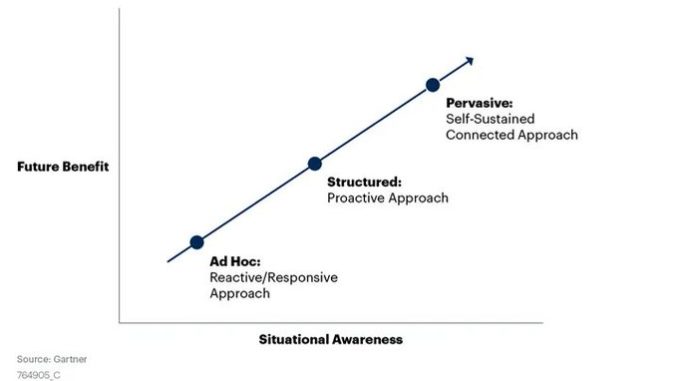
When artificial intelligence augments or even replaces human decisions, it amplifies good and bad outcomes alike.
There are numerous risks and potential harms created by AI systems, including bias and discrimination, financial or reputational loss, lack of transparency and explainability, or invasions of security and privacy. Responsible AI enables the right outcomes by resolving dilemmas rooted in delivering value versus tolerating risks.
Responsible AI must be a part of an organization’s wider AI strategy. Here are the steps that chief information officer and information technology leaders, in partnership with data and analytics leadership, can take to progress their organization towards a vision of responsible AI.
Define responsible AI
Responsible AI is an umbrella term for aspects of making appropriate business and ethical choices when adopting AI. It encompasses decisions around business and societal value, risk, trust, transparency, fairness, bias, mitigation, explainability, accountability, safety, privacy, regulatory compliance and more.
Before organizations design their AI strategy, they must define what responsible AI means within the context of their organization’s environment. There are many facets of responsible AI, but Gartner finds five principles to be the most common across different organizations.
These principles define responsible AI as that which is:
- Human-centric and socially beneficial, serving human goals and supporting ethical and more efficient automation while relying on a human touch and common sense.
- Fair so that individuals or groups are not systematically disadvantaged through AI-driven decisions, while addressing dissolution, isolation and polarization among users.
- Transparent and explainable to build trust, confidence and understanding in AI systems.
- Secure and safe to protect the interests and privacy of organizations and people while they interact with AI systems across different jurisdictions.
- Accountable to create channels for recourse and establish rights for individuals.
Read morehttps://siliconangle.com/2022/09/11/leaders-can-embrace-responsible-ai/
